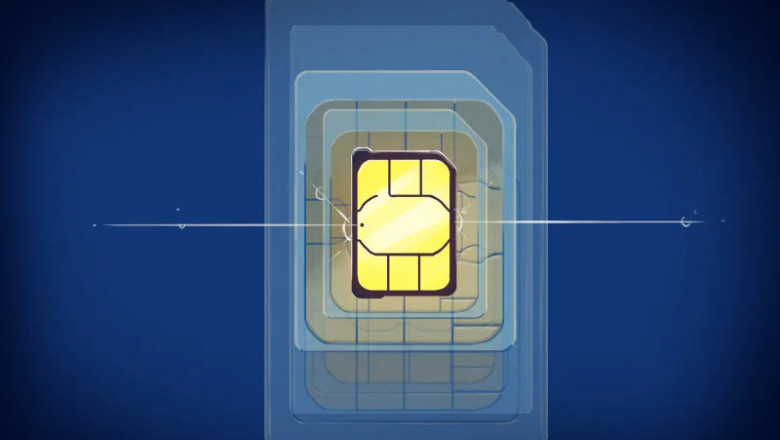views
In 2025, your mobile number is more than just a way to call or text—it's your digital identity. From banking to e-commerce, government portals to healthcare systems, everything revolves around the number linked to your SIM card. As digital ecosystems grow more complex, ensuring that each SIM card is accurately registered to its rightful owner has become essential—not just for convenience, but for security, legality, and trust.
This rising dependency on digital identity verification makes SIM owner details a core element in maintaining online safety and operational efficiency across sectors.
The Importance of Accurate SIM Owner Information
Accurate SIM owner Detail plays a critical role in three key domains: legal compliance, personal security, and seamless digital transactions. In Pakistan and beyond, fake or unverified SIM cards are often used in financial frauds, harassment, or even terrorist activities.
Whether you're sending money through a mobile wallet or logging into a government app, systems rely on the assumption that the SIM is connected to the verified person. Without accurate SIM data, trust collapses—and so do digital services.
Role in Preventing Cybercrime & Fraud
Cybercriminals often exploit unregistered or misused SIM cards to stay anonymous. Common cases include:
· Identity theft through SIM swapping
· Impersonation in WhatsApp scams
· Blackmail or harassment via anonymous calls
By enforcing real-time SIM owner verification, telecom authorities and security agencies can trace and block fraudulent activity quickly. The use of SIM databases that link numbers with CNICs (Computerized National Identity Cards) has become a powerful deterrent against mobile-related crimes.
Digital Verification Systems & SIM Databases
Countries like Pakistan have implemented PTA SIM databases to validate mobile ownership. These systems work by syncing each number with a national ID, ensuring that every mobile user is known and traceable.
What makes these tools more powerful in 2025 is integration with real-time APIs, allowing banks, e-commerce platforms, and apps to instantly check SIM owner data. This is vital for services like:
· Account logins
· Money transfers
· Biometric KYC (Know Your Customer) processes
Such SIM verification systems reduce fraud while enhancing digital transparency.
Regulatory Requirements and Legal Framework
Governments have tightened the laws around SIM issuance and ownership. In Pakistan, for instance:
· A user can own a limited number of SIMs per CNIC.
· SIMs must be biometrically verified.
· Unverified SIMs are blocked by telecom providers.
In 2025, non-compliance results in heavy penalties—not only for users but also for telecom companies. This push for compliance drives the broader goal of securing digital communication on a national level.
Consumer Benefits of Accurate SIM Data
The average user also reaps several benefits from accurate SIM registration:
· Secure mobile banking without the fear of impersonation
· Less spam and scam calls, thanks to verified caller IDs
· Peace of mind when making online purchases or receiving calls
With the growing adoption of fintech and e-commerce, your SIM identity now serves as your gateway to most services. The more accurate the data, the safer the experience.
Impact on Telecom Providers and National Security
For telecom providers, maintaining a clean and verified subscriber base means:
· Better customer service
· Reduced legal liabilities
· Improved network performance
At a broader level, national security agencies rely on SIM data accuracy to trace suspects, intercept criminal activity, and monitor organized threats. In fact, telecom data is now a critical layer of intelligence.
Ethical and Privacy Considerations
As powerful as SIM databases are, they must be used responsibly. While it's essential to know "who owns this number?", it's equally important to avoid data misuse.
Regulations now stress:
· Informed consent for data access
· Clear usage limitations
· Auditable systems for transparency
In short, ethical SIM data usage balances the line between security and individual privacy—a principle vital for digital societies.
How to Check SIM Owner Details Safely
For users wanting to check SIM ownership detail, legally-approved platforms should always be the first choice. In Pakistan, PTA’s systems and authorized portals allow safe SIM verification using CNIC or mobile number.
Never use shady apps or unauthorized websites claiming to offer "free SIM info". These often lead to phishing, scams, or even legal trouble.
Future Trends: AI, Blockchain & SIM Authentication
Looking ahead, SIM ownership verification is evolving with tech innovations:
· AI-powered KYC tools will automate and strengthen verification.
· Blockchain-based ID systems will offer tamper-proof SIM identities.
· eSIMs with biometric linking will dominate post-2025.
Together, these trends point to a future where SIM identity is not just accurate but also intelligent and secure—seamlessly integrated into the digital fabric of daily life.
Conclusion
In an increasingly connected world, where a mobile number often serves as your gateway to banking, shopping, and personal communication, the accuracy of SIM owner details is more critical than ever. It's not just a regulatory requirement—it's a foundation for digital trust. From safeguarding users against identity theft to empowering telecom providers and security agencies, accurate SIM data drives a safer and smarter digital ecosystem.
FAQs
Why is it important to have accurate SIM owner information?
Accurate SIM owner data helps prevent fraud, supports digital security, ensures legal compliance, and builds trust in services like mobile banking and e-commerce.
Is it legal to check SIM owner details in Pakistan?
Yes, it is legal—but only through authorized and government-approved platforms like PTA’s SIM information system. Using unverified tools is illegal and unsafe.
How can I check who owns a SIM card number in 2025?
You can check SIM ownership by visiting the PTA SIM information portal or similar government-backed verification systems. Always avoid third-party apps that aren't regulated.
What happens if a SIM card is not registered to the correct CNIC?
Unregistered or misregistered SIMs are subject to deactivation by telecom providers, and continued misuse may lead to legal action or fines.





















Comments
0 comment